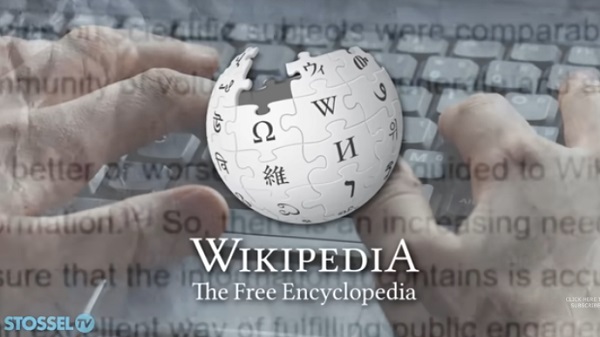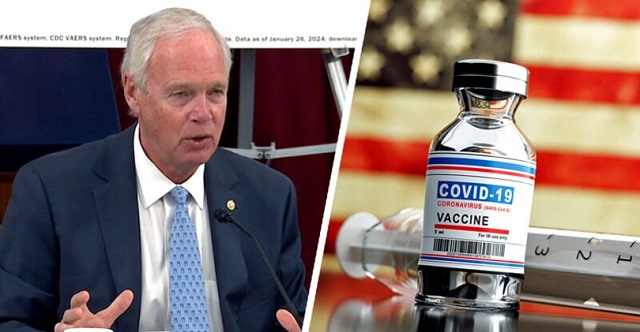Censorship Industrial Complex
How America is interfering in Brazil and why that matters everywhere. An information drop about USAID

USAID Corruption & Brazil’s Elections w/ Nikolas Ferreira & Mike Benz | PBD Podcast
If you’re reading this you’re probably aware that there’s an information war going on. Not the battle between the corporate media vs the new independent journalists. That’s more of a technological and a new media story. The real battle isn’t only between the players, it’s between the information each side is sharing with their audiences.
The corporate world looks down on independent media. They use words like disinformation and misinformation and conspiracy. What they don’t do very often is examine the information being shared and present their own take. In fact, often they don’t share the information at all.
This leaves corporate media faithful in a disadvantaged position. They’re angry because they can’t understand why the world is changing (for the worse in their opinion). They won’t give up their corporate addiction because they’ve become intrenched in the belief the independent start ups are sharing misinformation, disinformation, and conspiracy theories. Because their corporate sources of information choose to ignore or criticize information without presenting a more informed and researched version themselves, their followers are completely missing out on many of the biggest stories that are shaping the century we’re struggling through.
This podcast is a perfect example. Chances are those who ignore independent media have no idea who Patrick Bet David is. That means they’re very unlikely to know anything about Mike Benz. Benz has been revealing secrets of the deep state for years. Recently he’s picked up massive audiences as he makes sense of what’s happening in America and around the world. (Especially with USAID) PBD also talks to Brazilian social media sensation Niklas Ferreira who has a perspective of politics in South America’s largest and most important nation unlike anything you’ll see in the corporate media.
This podcast is fascinating and it answers a lot of questions, not just about America and Brazil, but about the US deep state efforts to control political movements everywhere.
From the PBD Podcast
Patrick Bet-David sits down with Nikolas Ferreira and Mike Benz to dissect the deep connections between USAID, Brazilian corruption, and the political battle between Lula and Bolsonaro.
Ferreira, one of Brazil’s most outspoken conservative voices, exposes how foreign influence and NGOs may be shaping Brazil’s political landscape, while Benz, an expert in geopolitical strategy, unpacks the hidden power dynamics between Washington and Latin America.
Censorship Industrial Complex
How Wikipedia Got Captured: Leftist Editors & Foreign Influence On Internet’s Biggest Source of Info

Fr0m Stossel TV
I once reported how great Wikipedia is. But now, it’s manipulated by leftists. That’s a big problem because its bad information corrupts AI and search results. Even c0-founder Larry Sanger agrees.
But that’s just the beginning of the problem because “Wikipedia’s information spreads into everything online,” says @ashleyrindsbergmedia of @NPOVmedia .
That means when your ask ChatGPT, Google, or your phone a question, it’ll likely to take leftist spin straight from Wikipedia. Wikipedia bans most right-wing news sources and suggests Donald Trump is an authoritarian fascist (but they don’t even call Fidel Castro’s successor authoritarian).
They’ve turned my Wikipedia page into a smear against me.
I explain in this video.
_ _ _ _ _ _
To make sure you receive the weekly video from Stossel TV, sign up here:
https://www.johnstossel.com/#subscrib…
_ _ _ _ _ _
Censorship Industrial Complex
Death by a thousand clicks – government censorship of Canada’s internet

The Justice Centre for Constitutional Freedoms announces its latest publication, Death by a thousand clicks: The rise of internet censorship and control in Canada, authored by veteran journalist and researcher Nigel Hannaford. The report outlines how recommendations from the Broadcasting and Telecommunications Legislative Review Panel in 2020 set the stage for a series of federal bills that have collectively transformed Canada’s once open internet into a state-managed digital environment that restricts what Canadians may access, share, and say online.
The report highlights the following federal legislation:
Online Streaming Act (C-11): Passed in 2023, this Bill gives the CRTC power to regulate online videos and other content, including material created by everyday Canadians. It also lets the government influence online “discoverability,” meaning it can push certain content to the top of your feeds while making other content harder to find.
Online News Act (C-18): Also passed in 2023, this Bill forces platforms to pay approved news outlets, a measure that led to increased dependence of media organizations on the government and widespread blocking of Canadian news as a result of Meta’s news ban on Facebook and Instagram.
Online Harms Act (C-63): Although this Bill was halted by the 2025 election, it would have empowered a new “Digital Safety Commission” to order content removals, demand platform data, levy severe financial penalties on service providers for non-compliance with regulations created by the federal cabinet, and impose house arrest on Canadians who had not been charged with or convicted of any crime. It also would have allowed the Canadian Human Rights Commission to pursue Canadians over non-criminal “discriminatory” speech, together creating a sweeping censorship regime under the guise of addressing so-called “harms” that were already illegal.
Strong Borders Act (C-2): Introduced in June 2025 and currently at second reading, this Bill authorizes law enforcement to obtain subscriber information and metadata without a warrant, chilling anonymous online expression and eroding digital privacy.
An Act respecting cyber security, amending the Telecommunications Act and making consequential amendments to other Acts (C-8): Introduced in April 2025 and now before committee, this Bill expands government access to private networks and enables federal officials to direct telecommunications providers to kick individual Canadians off the internet without due process or appeal.
Combatting Hate Act (C-9): Introduced in September 2025 and currently before Parliament, this Bill broadens “hate-propaganda” offences, removes Attorney General oversight for prosecutions, encourages widespread self-censorship, and makes Canada more like the United Kingdom, where thousands of citizens are arrested over their social media commentary.
Report author Nigel Hannaford said, “It is important for Canadians to know that these bills are not isolated technical updates. Together they form a coordinated shift toward state-managed digital speech.”
“If we value open debate, privacy, and democratic accountability, we need to repeal the laws already passed and stop the ones now before Parliament,” he added.
Benjamin Klassen, Research and Education Coordinator for the Justice Centre, said, “It is important Canadians stay informed about these important issues. An informed public is essential to a free society.”
“Through research reports like this one, our Education team works to explain complex legislation in a way that empowers Canadians to participate in the national debate around important policies and defend their rights and freedoms,” he added.
To protect free expression online, Canadians should demand the repeal of Bills C-11 and C-18, insist that MPs vote against Bills C-2, C-8, and C-9, and elect representatives committed to restoring a free and open internet.
-

 Alberta2 days ago
Alberta2 days agoDanielle Smith slams Skate Canada for stopping events in Alberta over ban on men in women’s sports
-

 International1 day ago
International1 day agoTOTAL AND COMPLETE BLOCKADE: Trump cuts off Venezuela’s oil lifeline
-

 Crime2 days ago
Crime2 days agoThe Uncomfortable Demographics of Islamist Bloodshed—and Why “Islamophobia” Deflection Increases the Threat
-

 COVID-191 day ago
COVID-191 day agoSenator Demands Docs After ‘Blockbuster’ FDA Memo Links Child Deaths To COVID Vaccine
-

 Business20 hours ago
Business20 hours agoCanada Hits the Brakes on Population
-

 Daily Caller9 hours ago
Daily Caller9 hours ago‘Almost Sounds Made Up’: Jeffrey Epstein Was Bill Clinton Plus-One At Moroccan King’s Wedding, Per Report
-

 COVID-191 day ago
COVID-191 day agoChina Retaliates Against Missouri With $50 Billion Lawsuit In Escalating Covid Battle
-

 Energy2 days ago
Energy2 days agoLiberals Twisted Themselves Into Pretzels Over Their Own Pipeline MOU


